The early beginnings of many an entrepreneur often carry a youthful exuberance. For others, responsibility and duty have more bearing.
With the unexpected passing of his mother in 2018, and his father the year after, Khairol Yazimannuddin Hj Borhanuddin (pictured centre main) – then in his late 30s and the eldest of four siblings – had to quickly decide if he would fold his parents’ businesses or attempt to lead them.
An education officer since 2004, Khairol, who goes by Yazi, grew up witnessing his parent’s entrepreneurial pursuits.
Hj Borhanuddin Hj Puteh left the civil service in 1991, having set up Boza Co a few years prior selling electronics. Hj Borhanuddin also tried his hand in several other business pursuits – none of which sustained until in 1999, when he made an ambitious play by setting up Boza Remittance, to cater to foreign workers looking to send money back home.
“My father was very much into business, but he did have many struggles,” said Yazi. “Early on into starting my career (in the government) I had to help finance my father’s business, including taking out a loan to support.”
His mother Siti Zainab Hj Madani, known to family and friends as Ka Ginab, carried on working in the government until her passing, but throughout her decades of service, would actively take on orders for colleagues and catering for her home-cooked food featuring classic, everyday Malay dishes.
“Growing up my mother was always active in the kitchen, and she would even let me cook for the family at times,” said Yazi.
“But unlike my father who set up many businesses and shops, my mother never had the chance to properly do. When she passed, she was just a year away from retiring.
“This is why we are here to set up at Kontena Park (KP). To fulfill my mother’s dream of one day owning her own restaurant.”
Malay comfort with Ka Ginab’s recipes
Yazi defines Kopitiam Ka Ginab’s menu, inspired by his late mother’s cooking, as “Malay comfort”. As such, soto, nasi lemak, chicken rice, porridge, and fried noodles are on offer, with a twist on select dishes. Their namesake dish, nasi ka ginab, features fried chicken, hati buyah (beef lungs) with sambal and rice; while their main fried rice is tom yam flavoured.
A former chef from Tarindak and his wife have been employed by Yazi to man and cook at their KP unit, which in turn frees up Yazi’s time to oversee the eatery alongside steering his late father’s businesses Boza Remittance, Boza Tech, and Boza Co, collectively known as the Boza Group.
“KP is an ideal starting place for us to test the market since it is under DARe. It is not just the space, but the training and monitoring offered by DARe that gives us the confidence to try,” said Yazi.
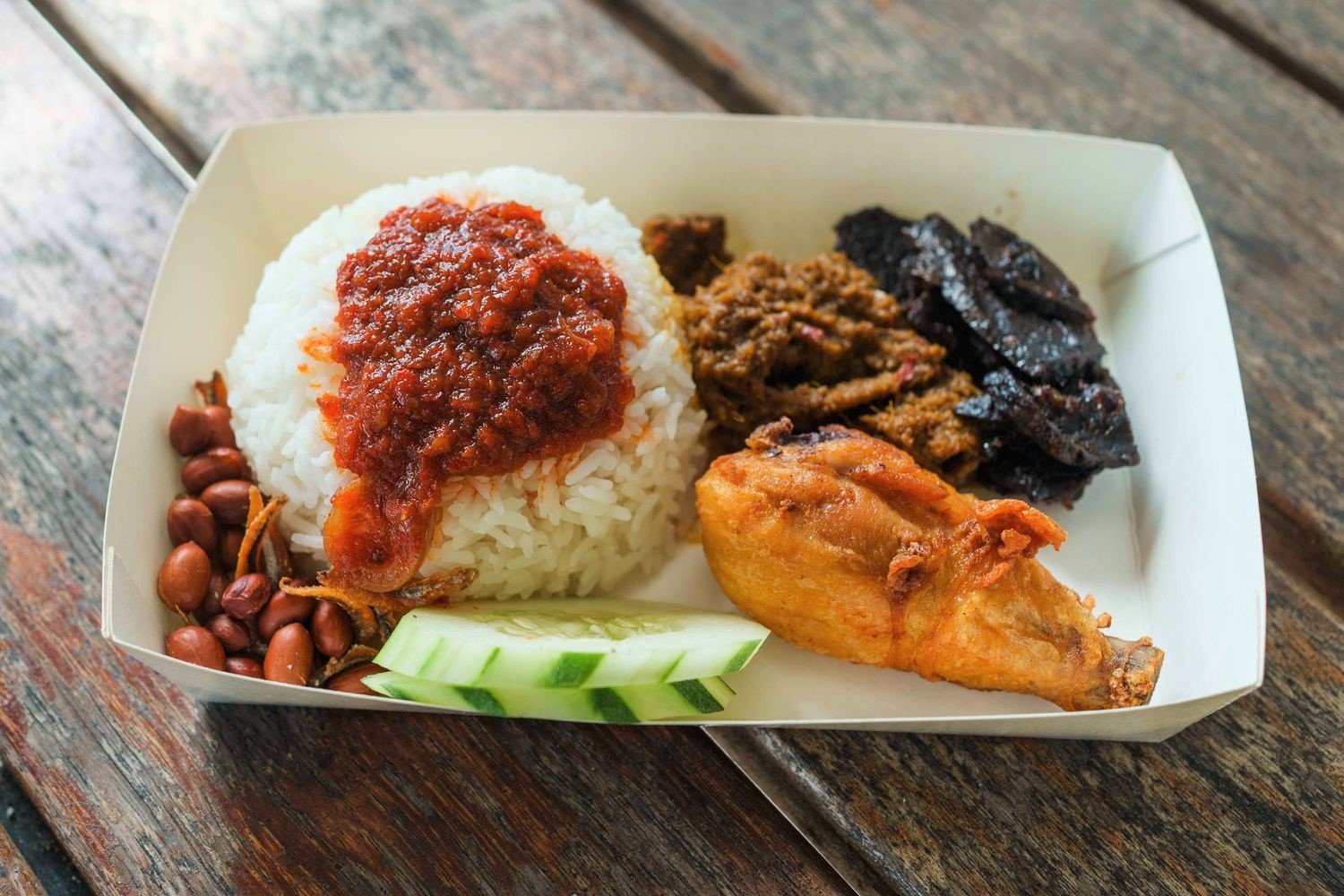
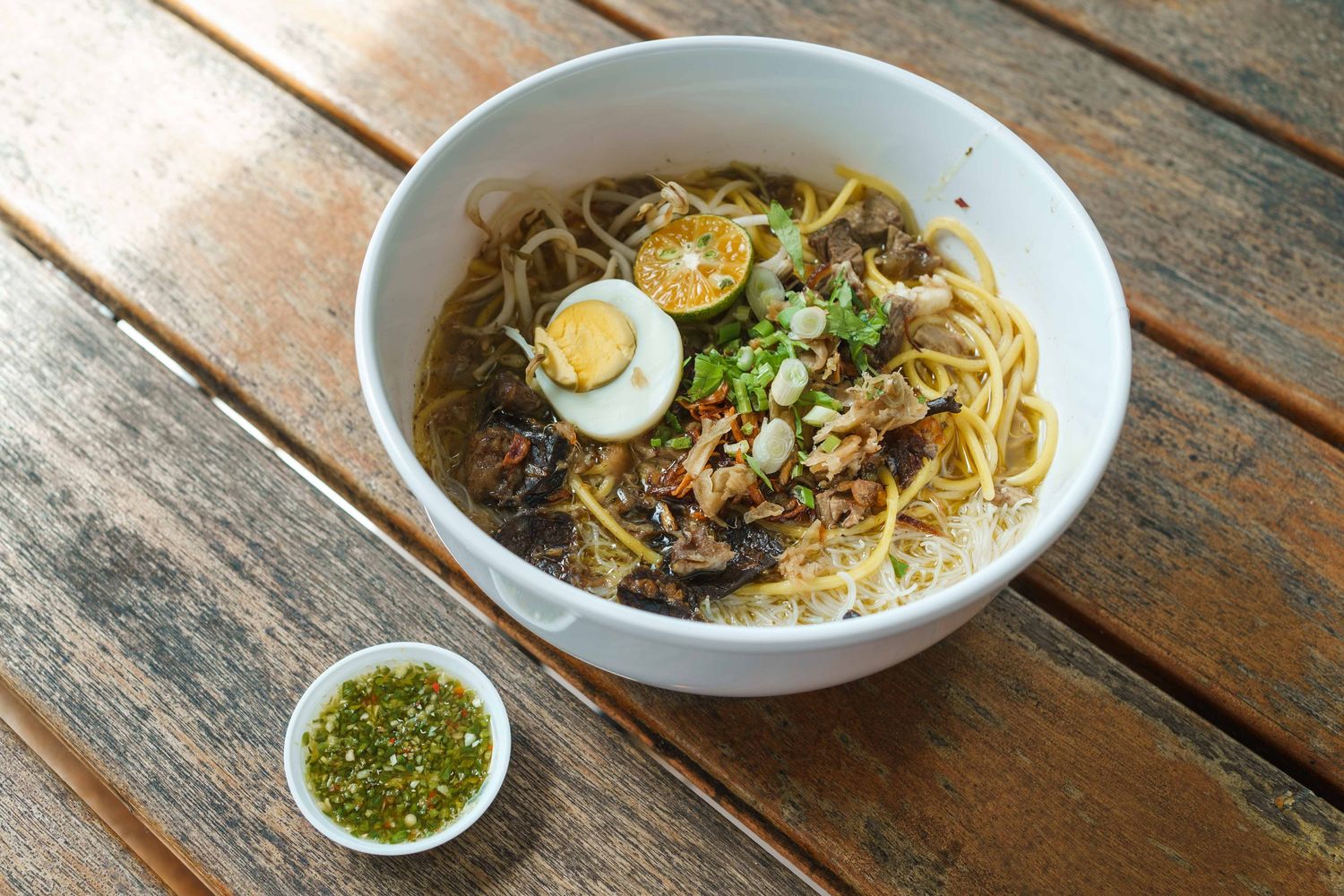
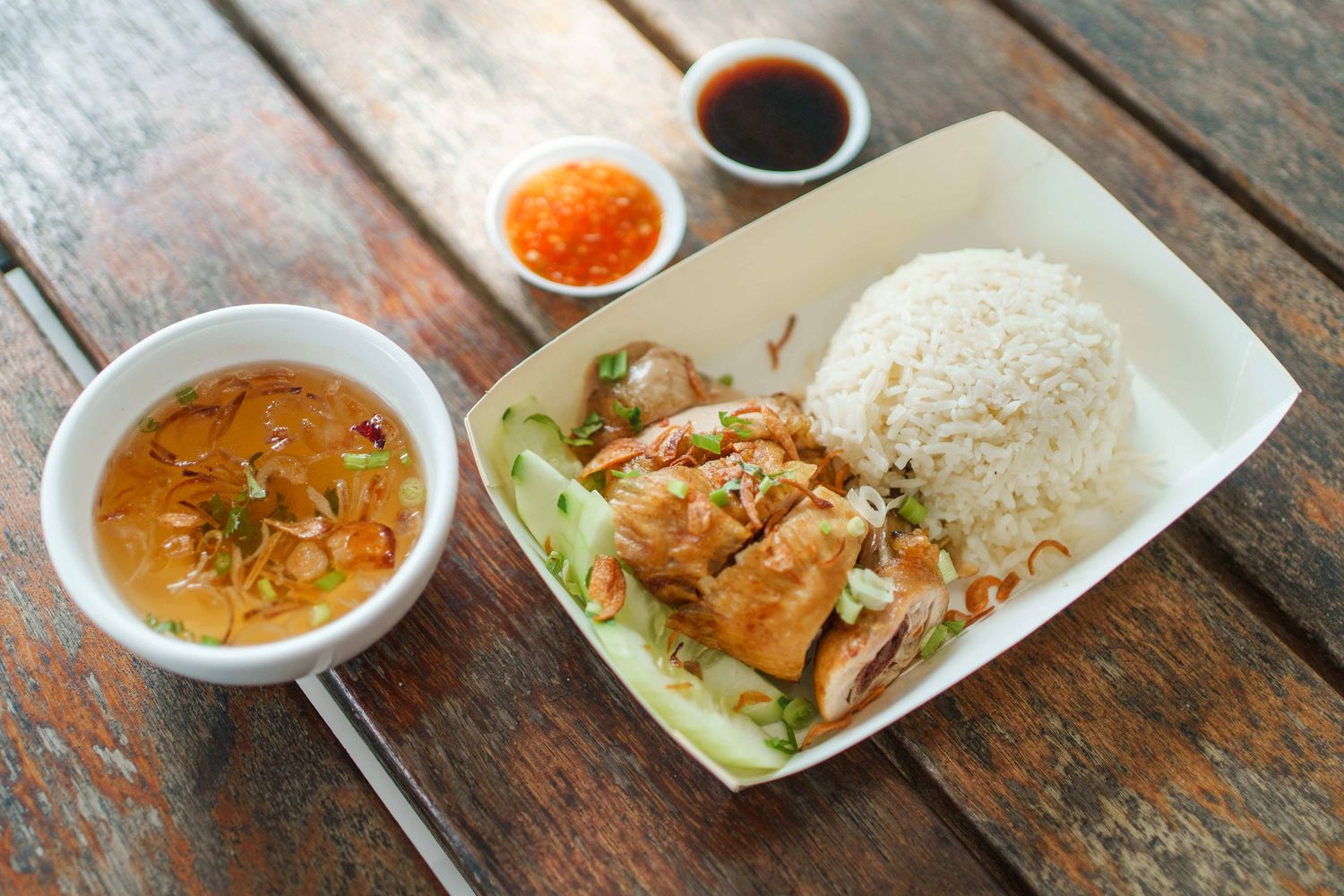

Revitalising the Boza Group with newfound knowledge
Yazi’s engagement with Darussalam Enterprise (DARe) dates back to his father’s passing three years ago.
Making the decision to continue his father’s businesses as the active director required him to leave his government job, and to ensure his ability in leading them, the 42-year-old began participating in DARe workshops and programmes, especially those under the Industry Business Academy (IBA).
As one the flagship developmental programmes offered by DARe, IBA offers a wide range of courses which businesses can individually choose to attend; to build up their competencies in specific fields, be it marketing, accounting, management or strategy.
Though the Boza Group’s longevity in an increasingly competitive environment was an indication that Hj Borhanuddin knew how to gain and retain customers, it comes as no surprise that Yazi – who holds a degree and master’s degree – was convinced that education was the missing link to take the businesses to the next level.
“Although I would help my father by helping draft letters and other documentation, in terms of business background I was very new (when I had to take over),” said Yazi.
“So I developed myself slowly as a business person. Through IBA I was able to learn each business area, one by one. With the knowledge, I reviewed our businesses, and restructured them, with the goal of making them more customer-focused.”
Yazi’s investment into training paid dividends; the subsequent re-design of Boza Remittance in the capital to be more in line with established financial institutions – along with improved user flow and marketing, saw remittance transfers nearly triple from his father’s time.
Boza Co, which retails CCTV and other small electronics is located next to Boza Remittance, while Boza Tech – who focus on corporate and residential safety-related solutions – is based in Kg Delima.
In total, the three businesses hire over 30 people, a sizeable number for Yazi to oversee, but the 42-year-old is confident in the systems and teams he has set in place, which enables him to focus on new ventures like Kopitiam Ka Ginab.
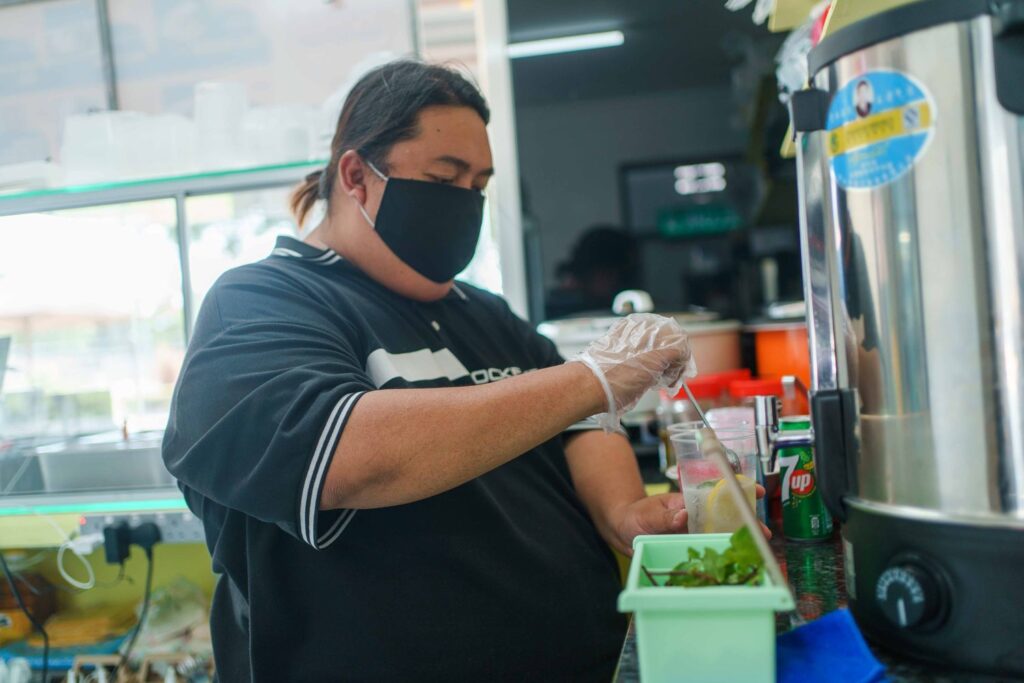
More than a dining space: Kontena Park’s tenants receiving two months training prior to opening
On April 1, KP welcomed its fourth cycle of vendors to its eight units. Appearing to visiting diners as mostly an open food court styled-facility, KP is actually a food and beverage (F&B) development programme that has undergone several revisions to improve its relevancy in equipping vendors with the necessary experience to be able to expand into the wider market following their KP tenancy.
The concept behind KP is to offer emerging businesses 12 months tenancy, after which they are expected to graduate to their own operations – especially in commercial premises – which in turn enables a new cycle of businesses to enter.
As an incubation space, KP’s rental is lower than its fully-fledged commercial counterparts at just $350 a month, and includes complementary point-of-sales solutions for vendors to digitise their record keeping.
The latest cycle which includes Yazi, underwent the programme’s most extended F&B training to date: two months of classes as well as a food review before being awarded their 12-month tenancy.
The training, sponsored by DARe, was split into nine modules including food safety, financial practice, marketing, and business plan writing. After moving in, businesses will also undergo monthly reviews with DARe; receive marketing support, and have the opportunity to apply for grants and access other programmes as a customer of DARe’s ecosystem.
“This is our opportunity to make it,” says Yazi. “We have the foundation through the training. With the monitoring and support, Inshallah, Kopitiam Ka Ginab will be able to grow into a restaurant.”


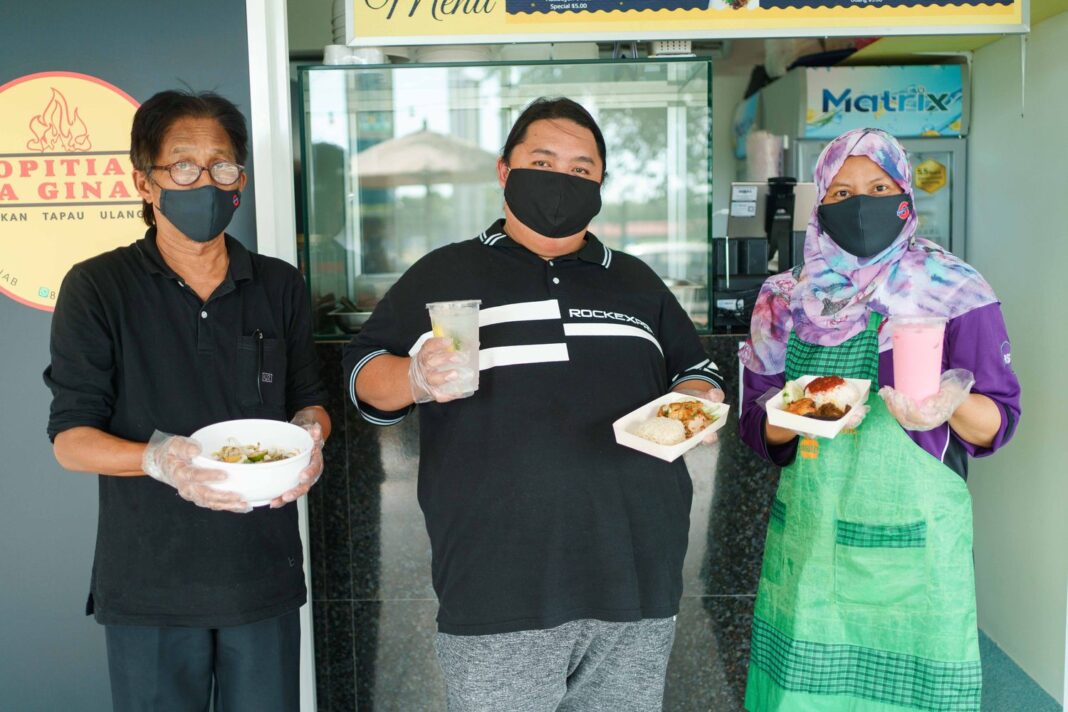

![[Video] Encore expands from materials supply to interior design and furnishing](https://www.bizbrunei.com/wp-content/uploads/2025/06/Youtube-Thumbnail-WOOD-EXPO-ORIENTE-218x150.png)
![[Video] Seven Sporks Opens at JP Foodcourt](https://www.bizbrunei.com/wp-content/uploads/2025/05/Seven-Sporks-Youtube-Thumbnail-218x150.jpg)






